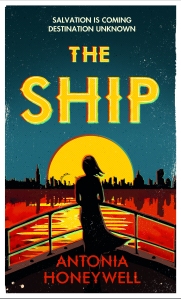I’m not as unhappy as I should be at the cancellation of the proposed vigil for Sarah Everard. What would it have achieved? What would it change? I’m exhausted with the same arguments going round and round and round. How many times have we Reclaimed the Night? How many stories have we shared around #MeToo? How many times, in how many ways, have how many women written about the need for men’s behaviour to change? The responses are always the same. It’s awful that women don’t feel safe, but it is what it is and would you rather carry an alarm or stay home forever? It’s #notallmen; equally, men are men and aren’t going to change. Radio 4 gives airtime to a woman who tells us that women mustn’t get hysterical. There’s always a brisk woman who says that they’ve never had a problem, and if other women just walked confidently, they wouldn’t have a problem either. Men tweet that they get attacked too. ‘Yes,’ women say for the hundred thousandth time, ‘By men.’ We’re implored to think of the toll on the poor men, constantly being associated with behaviours they’d never dream of committing. Metaphors about locked cars and bowls of crisps or Skittles do the rounds again and again, and we are left exactly where were were, and Sarah Everard walks home one night in bright clothes, sticking to the well-lit streets, on the phone to her boyfriend, and is murdered.
I did not know Sarah Everard, but I could have been her. Any of us could. And like many people, I would like to mark her death in a meaningful way, that does not intrude on the private and terrible grief of her family and friends. The conversation has to change, in a way it has not yet.
In spite of certain experiences, which I’m not going to share here except to say #MeToo, I like men, and would miss some of them terribly, not least my husband and sons. Men’s mental health is a serious issue; women’s safety is a serious issue. I do not see why one should be sacrificed for the other, or why I must educate any of my children in fear. When a good, loving, considerate man finds himself lumped in with the entitled pricks who flash and grope, he’s bound to feel defensive. When the very necessary connections are drawn between men who flash and grope and men who rape and murder, then most men – not all men, but most men – will grasp at anything they can to deny that connection. Men feel defensive; they reject, push back, deny, reframe. Feeling persecuted and helpless is not good for anyone’s mental health. What can I do? ask the good men helplessly. How can I help? But even the question pushes the mental load back onto women. Women cannot solve this. Women are already forced to assume the responsibility for their own safety, and we have learned over and over again that it simply doesn’t work.
What I propose gives men – yes, all men – an active, constructive and powerful way of commemorating the life of Sarah Everard and of paying tribute to the small acts of self-protection that women perform every time they leave their homes. It gives men a forum for engaging in the conversations they need to have with each other if the experience of the women with whom they share this beautiful world is to change.
For just one night, I would like the men to stay at home. Just one night. One night, to make a statement that they are listening. One night, to show that they acknowledge that it is men who make women unsafe. One night, to show their readiness to be part of the conversation that takes us forward. Men could talk to each other about why they choose to participate, or why they don’t. One night for men to make an active statement, to have a genuine, meaningful way of saying, I want to help. To communicate their concern through action.
Just one night. One night to start the conversation from a different place, in the hope of ending up somewhere new.

